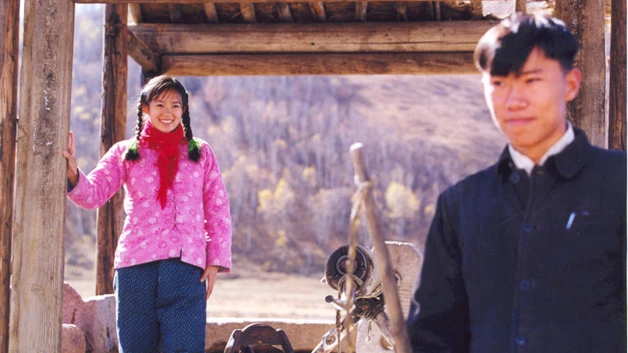The Road Home Film Difficulty Ranking: 2
Are you looking for a love story that will warm your heart? Or are you looking to explore rural China and all it’s customs and culture? Either way, check out The Road Home, a beautiful love story set in rural China directed by Zhang Yimou. Currently available to watch here on Amazon (for rent)
Why Watch The Road Home?
- If you’re in the mood for a romantic love story
- You’re a fan of Zhang Yimou’s martial arts films (Hero, House of Flying Daggers) and you want to see him explore something different
- To learn about customs (and superstitions) in rural China
- See how different school is in this film
The Breakdown
The first part of The Road Home is shot in the present day in dull black and white. Luo Yusheng arrives at his family home in rural China having traveled from his home in the city. His father has just died, and he’s come home to keep his mum company and sort out the funeral arrangements.
Tradition says you need to carry the dead all the way home whilst shouting out ‘this is the way home’ to remind them how to return. Yusheng’s mum is adamant that he must honor this tradition for their father. However, this tradition has rarely been carried out since the Cultural Revolution in the 60s and 70s. Whilst he’s figuring out what to do with his father’s body, the narrative switches to the story of Lusheng’s parents romantic courtship which has become a legend in their hometown.
Is this film a challenge to the state of Communism in China?
On the surface, The Road Home appears to be a regular love story. But, if you pay a bit more attention, you’ll see an underlying critique of the state of Communism in China.
In The Road Home, Zhang Yimou critiques the loss of culture. You’ll hear this first when the mayor says that the traditional burial mentioned above has not been done since the Cultural Revolution (a subtle jab against the Cultural Revolution for taking away part of Chinese Culture). But, more obviously the critique is present in the film’s portrayal of the past.
Whilst the present is shot in a dull black and white, the past is shot in vibrant colour. The colour reflects the emotion and hope embedded in the past, when the Communist Revolution was still young. In contrast the dull black and white of the present symbolises how the hope and optimism of the Communist Revolution has disintegrated and has taken culture and emotion with it.

Conclusion & What To Watch Next
The Road Home is a beautiful love story set in rural China. Luckily for all of you who don’t want to settle for pure cheesy romance, there’s much more to this film than initially meets the eye. Because if you look carefully, you’ll see the subtle critique of the direction of Chinese Communism.
If you want more romance, click here to explore all the films under in our Love film category.
Or if you’re looking for more Chinese film, head over to our Chinese film page. We recommend checking out A Touch of Sin for a more brutal depiction of life in contemporary China.





You must be logged in to post a comment.